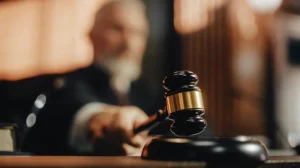The COVID-19 Legislation Amendment (Emergency Measures) Bill 2020 [NSW] passed on 24 March 2020 includes a regulation-making power to allow documents, such as Wills, Powers of Attorney, Appointments of Enduring Guardian to be executed in a manner other than prescribed by the applicable rules and regulations. At this stage the person signing the document and the witness must be physically present and sign at the same time, which is not practical in the current world we live in. The Law Society of NSW is working with the Government to enact regulation(s) in accordance with the regulation-making power as soon as possible. Given the uncertainty surrounding the COVID-19 pandemic, and the social distancing rules, it is important to have these regulations put in place as a matter of priority.
Pending introduction of these regulations, the current requirements and ‘good practice’ for revocation and execution of Wills, Enduring Powers of Attorney and Appointment of Enduring Guardian documents are as follows.
Wills
- To be valid, a Will should be in writing and signed by the Will-maker and two independent witnesses.
- The witnesses should be over 18 years of age and should not be the same person as the Executor(s), or any named or potential beneficiaries contemplated by the Will.
- The will-maker should sign the document first, following by the two witnesses.
- All parties should use the same pen.
- The witnesses should write down their names, addresses and occupations.
- The Will should be dated.
In light of the COVID-19 situation, it may not be possible or practical to locate two independent witnesses, which begs the need for the contemplated regulations.
Pending the introduction of these new regulations, if you realise that you need to update your Will for one reason or another, but given the circumstances you are unable to have two independent witnesses, if possible, have your signature witnessed by one witness. If it is not possible to locate any independent witnesses, you should still sign and date the Will.
A Will that is not executed in accordance with the prescribed legislation, is commonly referred to as ‘an informal Will’. The Court may admit an informal Will to Probate provided that:
- It is ‘a document’;
- The document sets out the author’s wishes or intentions for what he/she wants to happen in the event of his/her demise; and,
- The Court is satisfied that the Will-maker intended the document to operate as his/her Will.
It is always recommended that you have your Will professionally prepared. Writing one out yourself is a risky exercise which may result in misinterpretation of your wishes, prolonged litigation and extra costs to your estate.
Enduring Power of Attorney
An Enduring Power of Attorney should be signed by the principal (you) and witnessed by a prescribed witness.
A “prescribed witness” means:
(a) a registrar of the Local Court, or
(b) an Australian legal practitioner, or
(c) a conveyancer, or an employee of the NSW Trustee and Guardian, who has successfully completed a prescribed course of study; or,
(d) a foreign legal practitioner.
Your appointed attorney(s) do not require to have their signature(s) witnessed.
If you need to urgently revoke a Power of Attorney document you have in place, you can do so by tearing it up or destroying it in another manner. It is crucial that you also tell your appointed attorney(s) that you have revoked the document, preferably in writing (for example, by email or post).
Appointment of Enduring Guardian
An Appointment of Enduring Guardian document should be signed by you and witnessed by a prescribed witness. Your appointed guardian(s) will also need to have their signatures witnessed by a prescribed witness.
Similarly, a revocation of an existing Appointment of Enduring Guardian should be in writing and witnessed by a prescribed witness. A copy of the written revocation must be provided to the guardian(s) it removes.
We will continue to monitor further announcements and issue an update when the new regulations are introduced. In the meantime, if you need to update your Will, Enduring Power of Attorney or your Appointment of Enduring Guardian documents, please get in touch with Coleman Greig’s Wills & Estates Planning team as soon as possible.














